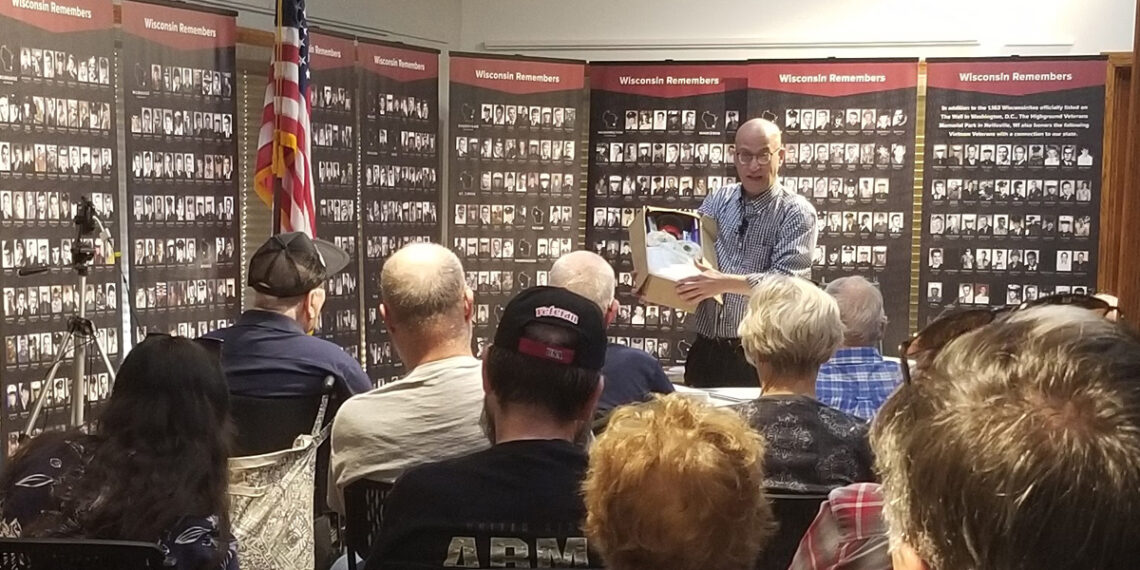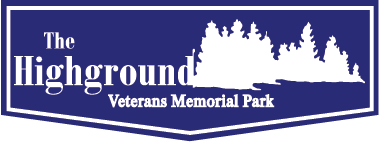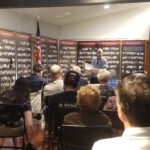“If you were forced to leave your country, what would you bring?” This was one of the many questions Dr. Khalil Dokhanchi with the University of Wisconsin-Superior posed to the audience during his speech about International Refugees. Dr. Dokhanchi’s presentation was part of The Highground’s International Day of Peace event held in The Highground Museum on September 21.
Dr. Dokhanchi discussed the definition of “refugee” and how a refugee is fleeing or being forced to leave a country due to persecution and many times a threat of death. A refugee is different than a migrant. A migrant is someone who travels voluntarily to seek a better way of life through improved employment, increased opportunities, family reunification or other non-life threatening reasons.
Through a series of interactive queries, Dr. Dokhanchi allowed the audience to get a personal glimpse into the decisions, difficulties and hazards that refugees face. The discussion followed the path of refugees based on those leaving a Middle Eastern location for a safer destination, for example, Germany and Austria. As part of an effective interactive method, audience members chose numbers. Based on that number, they were given a situation that they would be likely to face as a refugee. Examples of situations included, “You are a female judge in Afghanistan. What will you do now to survive economically.”; and, “You are out of money for food for your family and you are in the middle of your journey. Someone offers you $250 for your passport. What do you do?”; and “You have a job now in Turkey, but you could be deported at any time. Do you continue the journey to Germany or do you stay in Turkey?”
Not every refugee makes the journey. Some perish while trying to reach safety. Others have to give up along the way and settle mid-journey in a country that is unpredictable and hazardous. Some are returned to their original country where they face a life-threatening situation or even death. The presentation included information that many audience members were unaware of, for example, that a refugee’s travels through the “middle” countries between their original home and destination are fraught with physical dangers, economical dangers and threats of violence. The “what would you bring” question brought to light that the pivotal choices made by those leaving with very little possessions will many times decide their fate in the near future. One of the surprisingly important survival items the audience discovered was that having a “Ziploc” could make a vital difference. In this instance, having a passport during travels versus having a passport ruined could be a determining factor as to whether that refugee could stay in a desired country or will be returned to a place of danger. Also, the choice of taking a phone over what may seem like a more practical survival item may lead to a greater chance of success at finding a safe route to freedom.

A visual exhibit of what international organizations give to refugees showed the audience that refugees receive very little in the way of physical goods. The refugee’s survival and success rests mainly in the refugee’s own hands, i.e., their choices, determination, and in some cases, fate.
The Highground is looking forward to Dr. Dokhanchi returning to the Park on October 6 for Education Days to give his presentation to area middle and high school students. Adults are welcome to join the presentation (as well as the other presentations) on October 6. Those who are interested in attending are asked to RSVP to Theresa at museum@thehighground.us or by calling 715-743-4224.

